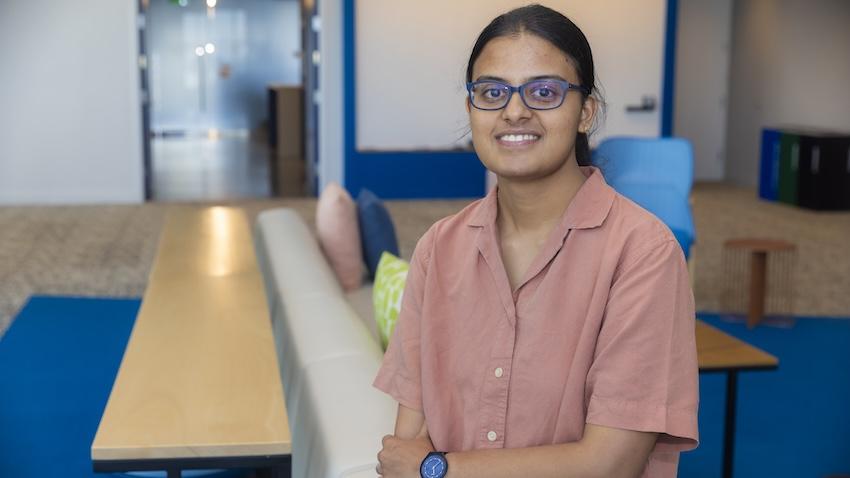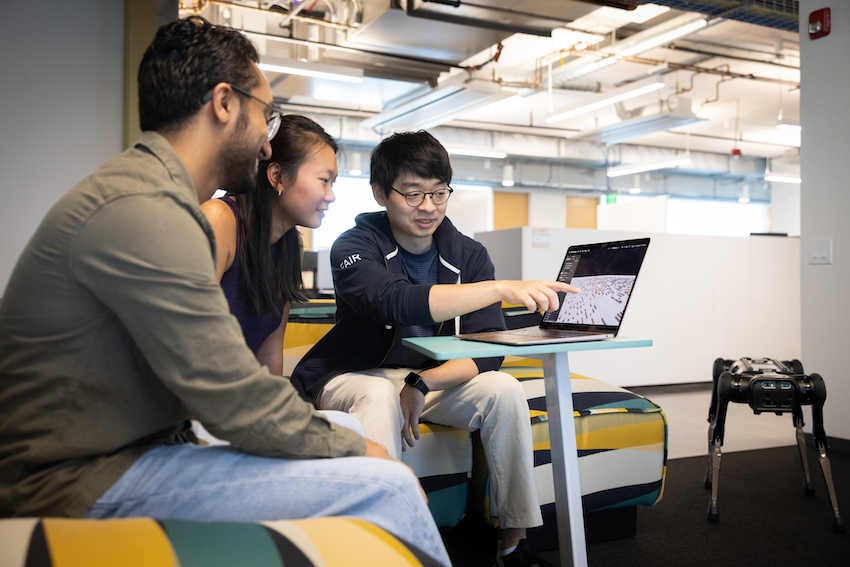
Quad Fellowship Recognizes Ph.D. Students as Top International Thinkers in STEM
Thanks to a global fellowship program, two Ph.D. students from the School of Interactive Computing will collaborate with some of the brightest minds in global STEM research.
Shravika Mittal and Naoki Yokoyama were named to the second cohort of the Quad Fellowship and will receive $40,000 to expand their research.
The Quad Fellowship is an initiative between the U.S., Australia, Japan, and India to build connections between the next generation of STEM scientists. The Institute of International Education administers the fellowship and many other prestigious international awards and scholarship programs.
The inaugural cohort was chosen in 2023, and this year, the program expanded from four regions to five, adding candidates from Southeast Asia.
Advised by Associate Professor Munmun De Choudhury, Mittal enters her second year as a computer science Ph.D. student this fall. She researches how to construct safe online communities, focusing on people with mental health disorders or substance abuse histories.
“I thought my work fits well into their mission through STEM,” Mittal said. “I use computer science and social sciences techniques to examine whether these platforms promote more good than harm. If they promote propagating stigma and misinformation, we try to inform policies to create better platforms.”
Seeing changes through policy has eluded her, Mittal said. She hopes the networking opportunities the program provides fill that gap.
“I don’t come from a policy-making background,” Mittal said. “This fellowship helps me network with policymakers, industrialists, and government organizations. I hope to be a bridge between them and these crucial issues, and I hope they can make suggestions and mold the message in a way that can be implemented in the real world.”

The $40,000 award will allow her to expand the scope of her research.
“Some of my work is shifting to large-language models and whether they’re suitable for the well-being of online communities,” she said. “Many of these LLMs are closed. You need to pay some amount of money to gain access to them. These funds let me look closer at these models. I can also do more people-focused work and talk to members of these communities.”
Mittal received the College of Computing’s Rising Star Award earlier this year.
Yokoyama is a Ph.D. student in robotics. Associate Professor Dhruv Batra and Assistant Professor Sehoon Ha advise Yokoyama.
Yokoyama has introduced novel research in assistive robotics in which robot assistants perceive and interact with their environment to accomplish complex real-world tasks. In May, he earned a best paper award at the prestigious International Conference on Robot Automation in Yokohama, Japan.
Yokoyama says he will leverage the Quad Fellowship to continue creating adaptive robot learning methods that enable robots to perform complex household tasks in unstructured environments. He will develop new algorithms that allow robots to become more practical and deployable in homes.
“I am grateful to be a part of a global community dedicated to advancing science and technology for the betterment of society,” Yokoyama said. “This fellowship will allow me to further my research in developing intelligent assistive robots that can enhance the independence and quality of life for the elderly and disabled across diverse cultural contexts.”
Yokoyama also received the Herbert P. Haley Fellowship this year, which recognizes students who have authored journal papers or received best paper awards during their graduate studies at Georgia Tech.
As computing revolutionizes research in science and engineering disciplines and drives industry innovation, Georgia Tech leads the way, ranking as a top-tier destination for undergraduate computer science (CS) education. Read more about the college's commitment:… https://t.co/9e5udNwuuD pic.twitter.com/MZ6KU9gpF3
— Georgia Tech Computing (@gtcomputing) September 24, 2024


